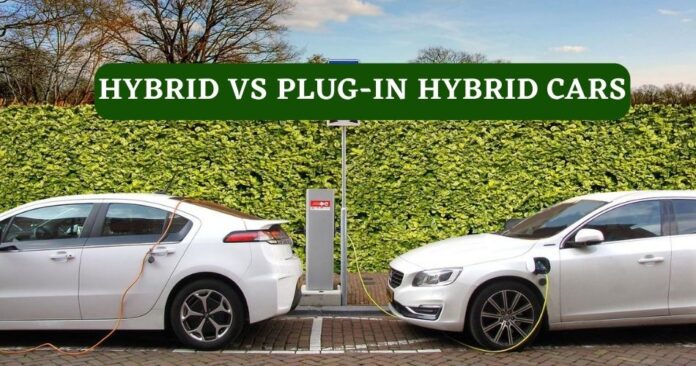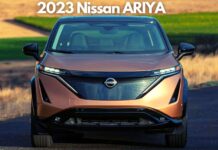The automobile industry is slowly advancing towards the use of sustainable energy. In today’s auto market, we can find a considerable number of electric and hybrid vehicles. Auto enthusiasts have also shown determination to use electric and hybrid cars that are environment-friendly.
The major difference between electric and hybrid vehicles is the use of technology that delivers power and performance. Electric cars are fully powered by battery technology whereas hybrid vehicles can run with gas as well as electric power.
Hybrid vehicles are also available in two different types which are Parallel/Series Hybrid and Plug-in Hybrid. These two different technologies look confusing so, we have prepared this detailed article to let you know the difference between Hybrid and Plug-in Hybrid cars.
But before digging into our main topic, let’s explore Hybrid and Plug-in Hybrid cars.
What is a hybrid car and how does it work?
A hybrid car is a type of vehicle which is equipped with an internal combustion engine along with one or more electric motors. The combustion engine delivers the majority of power to the hybrid car whereas the electric motors support auxiliary loads and reduce engine idling when the car is stopped.

The electric motors are powered by the batteries installed in the hybrid car. One of the important things to know about the hybrid car is that the batteries cannot be charged using the plug-in method. You must be wondering how hybrid car batteries are charged.
Well, the battery used in the hybrid car is charged via power support from the internal combustion engine and regenerative braking mechanism. The hybrid car offers better fuel economy and performance with the combination of engine and electric motor.
The internal combustion engine, battery, DC Converter, Electric Generator, Electric Traction Motor, Exhaust system, Gasoline fuel tank, power electronics controller, thermal system, traction battery pack and transmission technology are the key components of a hybrid car.
Do Hybrid Cars use Gas?
The overall power required for hybrid cars is delivered by the international combustion engine which runs with petrol or diesel. That’s why the primary fueling source for hybrid cars is Gasoline.

The electric motors powered by the energy stored in batteries are responsible for offering extra power to the secondary loads and reducing engine idling. Power from the engine and electric motors combine in such a way that the hybrid car comes up with better fuel economy while maintaining desired performance.
What are the benefits of a hybrid car?
There are various benefits of a hybrid car but the main benefit is the environmentally friendly nature. The hybrid car does not compromise performance even after providing good fuel economy.
Major benefits of using a Hybrid Car
Environmentally Friendly
Hybrid cars are equipped with an internal combustion engine and one or more electric motors. The overall required power is delivered by the engine whereas the electric motors deliver extra power for handling secondary loads and supporting the engine during stops.
Due to the inclusion of battery-powered electric motors, hybrid cars offer better fuel economy and performance. Also, they have lower fuel consumption than conventional cars which results in lesser emissions. This directly benefits the environment.
Regenerative Braking Technology
The electric motors installed in hybrid cars are powered by the energy stored in the battery. You do not need to charge the battery in hybrid cars because they are charged through regenerative braking technology.
If you apply the brake on your hybrid car, a small amount of energy is generated in the battery. This energy is stored by the system and then supplied as a charge to the battery. With that, you don’t have to worry about charging on longer drives.
Financial Benefits
The government offers financial benefits to hybrid cars which include lower annual tax bills, congestion charges and so on. Besides, hybrid cars are supported by various governing bodies to make them reasonable.
What are the disadvantages of a hybrid car?
As long as hybrid cars offer various advantages, you will definitely find negative aspects or disadvantages.
Here are the major drawbacks of owning or using hybrid cars
Less Power
Hybrid cars are powered by a gasoline engine along with one or more electric motors. The majority of power is delivered by the gasoline engine while the electric motors offer extra power.
Due to the combination of electric motors and a gasoline engine, the power might not be delivered up to an optimum level.
Expensive Pricing
Though hybrid cars offer fuel economy and good performance in the long run, they might cost more than conventional cars while buying.
Higher Maintenance and Running Costs
Hybrid cars are featured with the latest technologies due to which regular maintenance requires professionalism. Only expert mechanics can conduct the proper maintenance of your hybrid car. That’s why it could cost a little more for maintenance and repair work. Besides, it could be expensive to replace the battery for hybrid cars.
Poor handling, electrocution risk and hydrogen fuel cell issues are other disadvantages of hybrid cars.
What is a plug-in hybrid car? Is a plug-in hybrid car a good idea?
Plug-in Hybrid Electric Vehicles (PHEVs in short) are equipped with an electric motor and an internal combustion engine. This system looks similar to hybrid cars however, the major difference is the power delivery. The primary power required for operating plug-in hybrid cars is delivered by the electric motor which runs with the energy available in the PHEV batteries.

In hybrid cars, charging is not required for a battery however, the plug-in hybrid car must be charged using home charging equipment or DC charging stations. Besides, a small amount of charge can be generated through regenerative braking and with support from the internal combustion engine.
Plug-in hybrid cars operate primarily on electric power generated by electric motors. But what about the role of the gasoline engine?
Whenever the electric power diminishes due to battery depletion, the internal combustion engine comes into action and provides additional range using conventional fuel. This is the key mechanism of plug-in hybrid cars.
What are the benefits of a plug-in hybrid car?
Like Hybrid Cars, PHEVs also offer lots of advantages and eco-friendly nature is the major one.
Here are some of the benefits of using a plug-in hybrid car
More Electric Power, Less Fuel Consumption
The primary power required for plug-in hybrid cars is delivered by the electric motor. The Gasoline engine comes into action only after the overall charge on the battery declines. With that, PHEVs consume 30% to 60% less gasoline than conventional cars.
Environmentally Friendly
Plug-in Electric cars produce less greenhouse gas emissions compared to conventional cars. PHEVs use electric power as the primary source of energy due to which they operate safely without harming the environment.
Almost no range anxiety
Range anxiety is common among electric and plug-in hybrid owners. With PHEVs, you do not need to worry about the range as your car automatically gets switched to gasoline power once the charge declines to a minimum level.
Tax Benefits, an easy driving mechanism and reasonable running costs are other benefits of PHEVs.

What are the disadvantages of a plug-in hybrid car?
The major disadvantage of using a plug-in hybrid car is the use of a heavy battery that may be too expensive and can result in battery life concerns.
Here are some of the drawbacks of owning PHEVs
- Initial Cost may be more expensive than Hybrid or Conventional Cars
- Maintenance tasks may be complex
- Resale Value may not be guaranteed
We explored both hybrid and plug-in hybrid cars in the above section including their advantages and disadvantages.
While going through the article above, you might have already found the major difference between Hybrid and Plug-in Hybrid Cars. To make it easy, let’s summarize the key difference between these two vehicles.
What is the difference between a hybrid and a plugin-hybrid car?
The major difference between a hybrid and a plugin-hybrid car is the working mechanism.
The primary source of power for Hybrid cars is the internal combustion or gasoline engine whereas the electric motor offers extra power for the auxiliary road and conserves energy during the engine idling phase. On the other hand, Plug-in Hybrid Cars (PHEVs) use an electric motor as the primary source of power and the gasoline engine activates only after the charge runs out.
Hybrid Cars do not require manual charging via cables or charging stations because the charge is generated in the battery through a regenerative braking system and from a gasoline engine. But, Plug-in Hybrid Cars must be charged using a wall charger or higher voltage charging.
| HYBRID CARS | VS | PLUG-IN HYBRID CARS |
| Internal Combustion Engine | PRIMARY SOURCE OF POWER | Electric Motor |
| Electric Motor | SECONDARY SOURCE OF POWER | Gasoline Engine |
| Smaller | BATTERY SIZE | Larger |
| Regenerative BrakingFrom Gasoline Engine | RECHARGING MECHANISM | External Power Source (Home Charging, DC Charging) |
| Less Expensive | BATTERY COST | More Expensive |
Which is better, a plug-in hybrid or hybrid car?
Both the hybrid and Plug-in hybrid cars have their positive and negative factors. It might be confusing for you to choose between these two options.
Choosing between Plug-in Hybrid and Hybrid cars may depend on the riding habits, requirements, availability of a charging facility, budget and various other factors.
If you prefer driving an electric car but are worried about the range, you can go with the Plug-in Hybrid car. On the other hand, if you don’t have access to the charging facility or do not prefer to regularly charge, the hybrid car is the better option.
As per the running cost is concerned, plug-in hybrid cars are more reasonable because you will be using less gasoline and more electric power. But the initial cost may be more compared to hybrid and conventional cars.




